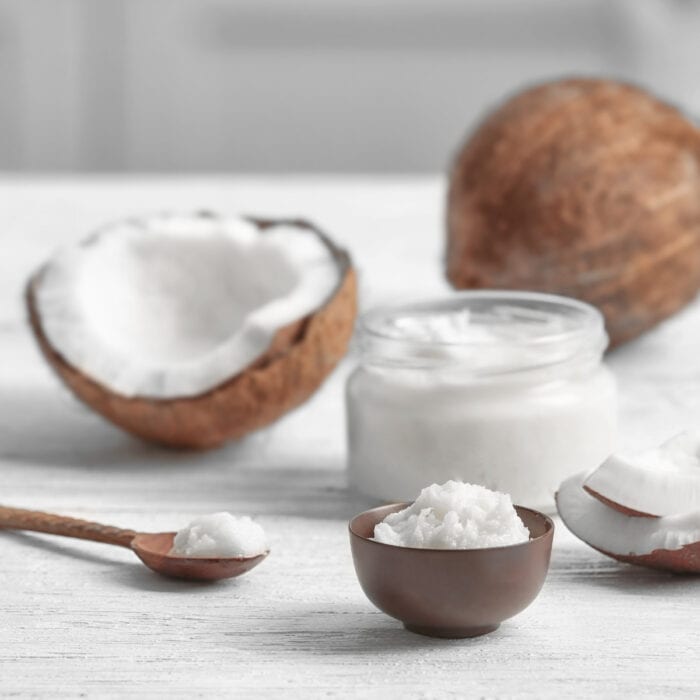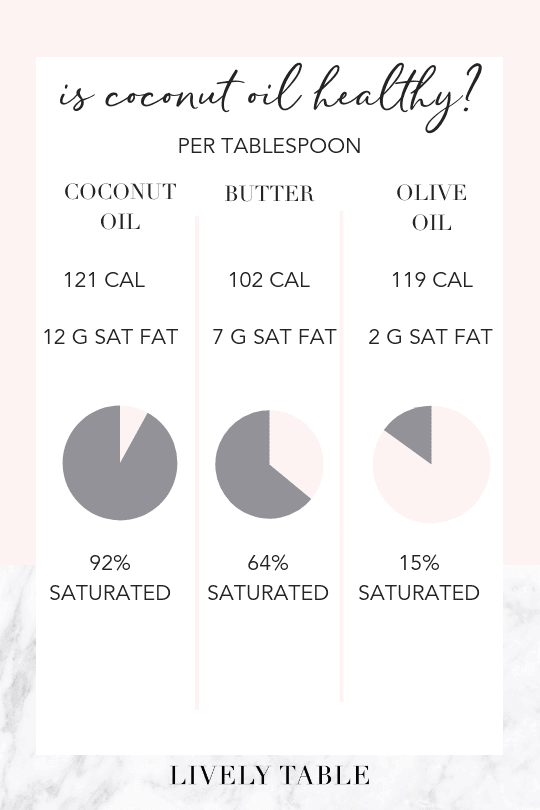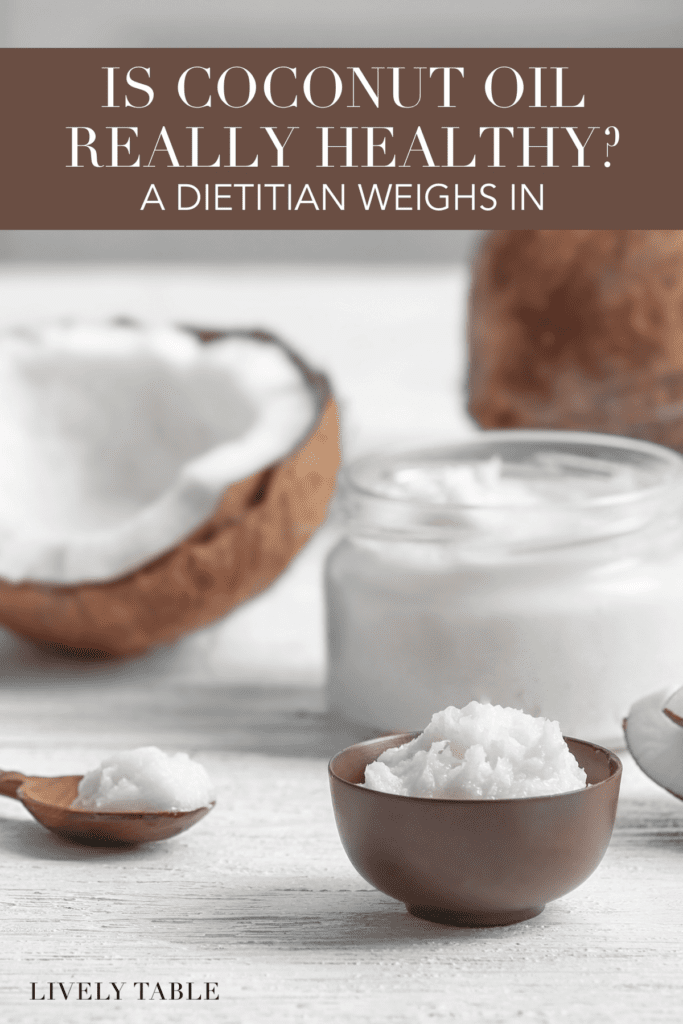Is coconut oil really healthy? Get the researched facts and nutritional breakdown of coconut oil.

Coconut oil had exploded in popularity recently. It's in everything. Products now tout "made with coconut oil!" Why? Because coconut oil it is perceived as healthy. Some people even go as far as to eat it by the spoonful. But is coconut oil actually healthy? Or are people just rapidly ingesting globs of fat that will later prove harmful? For questions like this one, we turn to science. Let's take a look at what science has to say.
But first a quick nutrition lesson.
All foods are made up of fat, carbohydrates, and protein. Oils and other fats, like butter, are made up of almost 100% fat. Fats (or fatty acids) can have different chemical structures. Fatty acids can be either saturated or unsaturated. Saturated fats are solid at room temperature and are found in high concentrations in things like coconut oil, butter and other animal products. They are scientifically proven to be unhealthy for your heart when consumed frequently. Unsaturated fats, on the other hand, are liquid at room temperature, and have been clinically proven heart healthy. They can be found in olive and canola oils, nuts, and fish, among other foods. Then there are trans fats which are usually made in a lab and are known to be destructive to your cells. They are in anything with 'hydrogenated oil' on the label. Furthermore, fatty acids can be short, medium and long, measured by the number of carbons in the fatty acid's chain. All of these fatty acids occur in differing ratios in different foods.
Nutritional Breakdown of Coconut Oil Compared to Other Fats

Why does everyone think coconut oil is healthy?
It's because coconut oil contains medium chain fatty acids (or medium chain triglycerides: MCTs) . MCTS are digested differently than long chain triglycerides (LCTs), which is what most fats are. MCTs are capable of being transported straight to the liver, where they can be used as an energy source for your body instead of being stored as fat. LCTs cannot. This has given coconut oil a reputation (thanks in part to our good old friend Dr. Oz) for being a miracle weight loss cure. But for the love of all that is good, please just HOLD YOUR HORSES! While weight loss trials with MCTs (yes there are some) have shown their effectiveness in weight loss, these trials studies pure MCT oil. That means 100% of it is composed of MCTs. Coconut oil has only 40% MCTs. The remaining 60% are LCTs. Research has yet to conclude that weight loss can be achieved through coconut oil.
Also, remember that table I showed you with the nutrition breakdown of fats? Coconut oil is still fat, and fat still has calories, healthy or not. And too many calories from any source will lead to weight gain. Not weight loss. Sorry.
There is another reason coconut oil has received a health halo. Virgin coconut oil contains vitamin E and polyphenols. These compounds in virgin coconut oil were found to improve good and bad cholesterol levels in a study on rats when compared to refined coconut oil. But guess what else has vitamin E and polyphenols? Virgin olive oil! And guess which one has been proven heart healthy in multiple clinical trials? That's right- olive oil. There still is not enough scientific evidence to call coconut oil heart healthy. So far the only thing we know is that saturated fat is linked to worse heart health.
But I'm not completely hating on coconut oil. It does have it's place in the kitchen. Since many recipes call for solid fats like butter or shortening due to their chemical properties, coconut oil is a great choice, especially for vegans. While shortening is also vegan, it's full of those trans fats I told you about. So in the instance that a recipe calls for shortening, coconut oil is a great alternative! Just make sure you are getting the extra virgin kind of coconut oil at the store. The refined versions are more processed and definitely do not have the vitamin E and polyphenol activity that the virgin kind does. And PLEASE DO NOT eat it with a spoon, people!
Bottom Line:
There simply is not enough research to deem coconut oil a 'health food.' Current scientific research tells us that unsaturated fats are heart healthy and saturated fats are not. And both kinds have calories, so use them in moderation. If you do choose to use coconut oil (and there are valid uses) buy the virgin kind for the most benefit. (PS: For a complete coconut oil buying guide, go here.)



Brynn at The Domestic Dietitian says
Thank you, thank you, thank you! It's such a pet peeve of mine when all the sudden the new "hot ingredient" comes along and then it's in everything! I will say I am a fan of coconut oil for skin and hair...makes it so smooth!
Sonali- The Foodie Physician says
Thank you for this informative post- I learned a lot! With all of the current hype about coconut oil, it's nice to read a post that's based on scientific evidence. I used coconut oil recently as a substitute for shortening in a pie crust recipe and it worked great.
Kaleigh M says
Thanks Sonali! I use coconut oil in my pie crusts as well. It turns out beautifully!